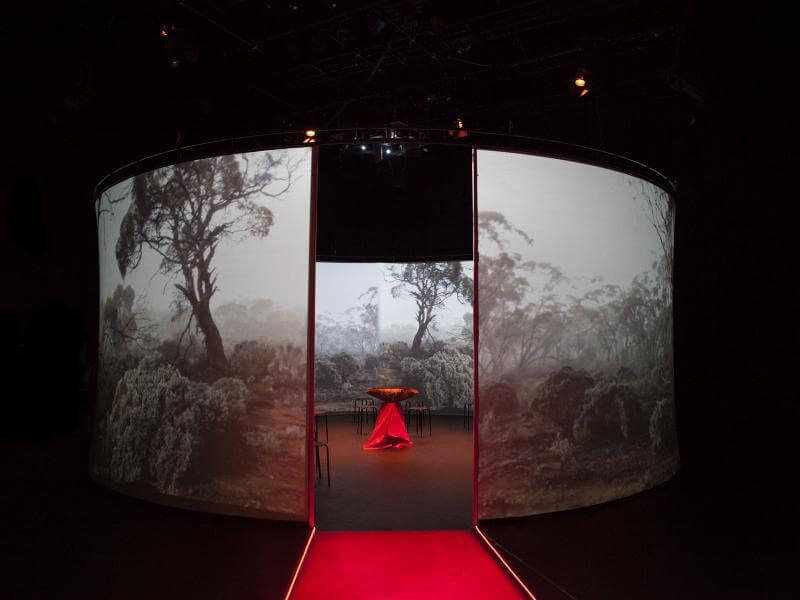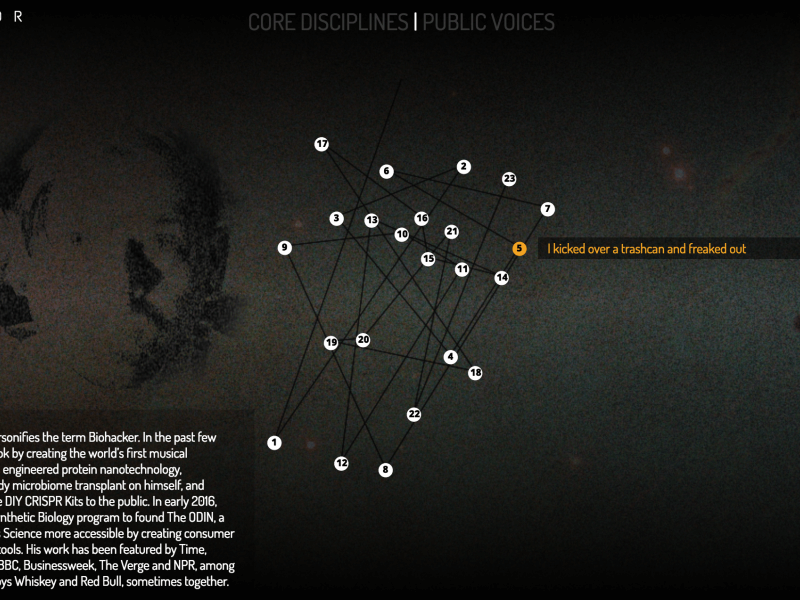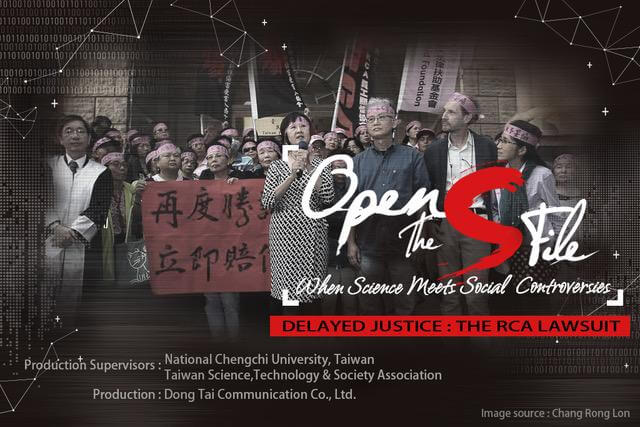STS Making and Doing Awards 2018: (multiple winners)
Paul Frederick Brown, University of New South Wales & Gordon Murray, Winchester University, ‘Nuclear’: Creative Arts Exposing Humanitarian Impacts of the Atomic Bomb, using immersive digital projections
This making and doing award honors the work of Paul Brown and Gordon Murray on behalf of Alphaville Arts and the indigenous atomic survivors from Maralinga and decedents and the nuclear veterans of Australia and Great Britain for their project ‘Nuclear’: Creative Arts Exposing Humanitarian Impacts of the Atomic Bomb, using immersive digital projections
The modes of presentation of Alphaville’s work are as diverse as the publics they engage. From nuclear soundscapes of the deserts of what is now southern Australia to the sculptor’s iron forge, from moving image to text, this tremendous body of work articulates the experiences of indigenous communities, service personnel, and civilian workers whose lives have been directly impacted by atomic testing. In line with the conference theme, these stories of radiological endurance are not contained to a specific nation, rather indigenous Australian casualties of refining the apparatuses of war and empire are durably linked to the survivors of overt nuclear war in Japan.
Britt Damm Wray, University of Copenhagen, Aurator: audio diaries across synthetic biology’s disciplinary boundaries
The STS Making and Doing Committee honors with an award: Aurator: audio diaries across synthetic biology’s disciplinary boundaries by Britt Damm Wray from the University of Copenhagen. Aurator, an online interactive project built around the audio diaries of actors working in and around synthetic biology – draws together the voices of, among others, a biohacker, an entrepreneur, a watchdog, bioethicist, and social scientist. Emerging from Damm Wray’s PhD research, the project grew from experiment in which each actor was sent an audio recorder and an open-ended question to reflect on, once a week for twelve weeks. Evoking the mixed sentiments that channel around varied lives of synthetic biology, and the Napsterifcaiton of medicine – as one interlocutor put it – you can see more on the project online – and the project (we’re told) will continue on at the University of Warwick.
Wen-Ling Tu, Wen-Ling Hong, Yi-Ping Lin, Shiang-Yao Liu, Hsin-Hsing Chen, Chen-Yung Lin, Chung-Hsi Lin, Yuan Yuan, (all Taiwan Science, Technology & Society Association), Delayed Justice: the RCA Lawsuit
The STS Making and Doing committee are also very pleased to honour the collective of Taiwanese scholars who have all participated in the project ‘Delayed Justice: The RCA Lawsuit’. Drawing on their involvement in the emerging life of one of Taiwan’s most science-intensive court cases, these scholars presented a multi-media project and films series that tells of their ongoing civic engagement in this case, and their processes for developing new means for articulating science, translating the law, and formalising what a transparent judiciary should be. Configured within diverse arenas of activism, science practice, corporate business and the law, the project presented stories of engaged STS work as well as the fraught and complex partnerships that such work invites and maintains.
2018 STS Making and Doing Honourable Mentions:
Hanbyul Jeong, KAIST, Introducing My Laboratory: The Lab-Life Simulator
Hanbyul Jeong, from KAIST, for Introducing my Laboratory; The Lab-life Simulator, a board game designed by Engineers and Scientists for Change (ESC), an NGO of scientists, engineers, science journalists, STS scholars, and citizens in South Korea. The game aims to circulate STS work from laboratory studies about the understandings of knowledge, culture, politics, and ethics in science and technology to graduate students in science and engineering.
Gwen Ottinger & The Fair Tech Collective, Drexel University, Meaning from Monitoring
Gwen Ottinger and The Fair Tech Collective, from Drexel University, for Meaning from Monitoring, a project that tried to make air quality data available to larger publics in the San Francisco Bay Area, to learn that they could only do so by bringing together STS scholars, an data anthropologist at Intel Labs, and a programmer for 18 months. Which results in a shift from seeing the need for democtratizing air quality data and criticizing air quality standards, to changing the expert/citizen interface to strengthen those standards.
2018 Making and Doing Program
View all the 2018 making and Doing Summaries here.



